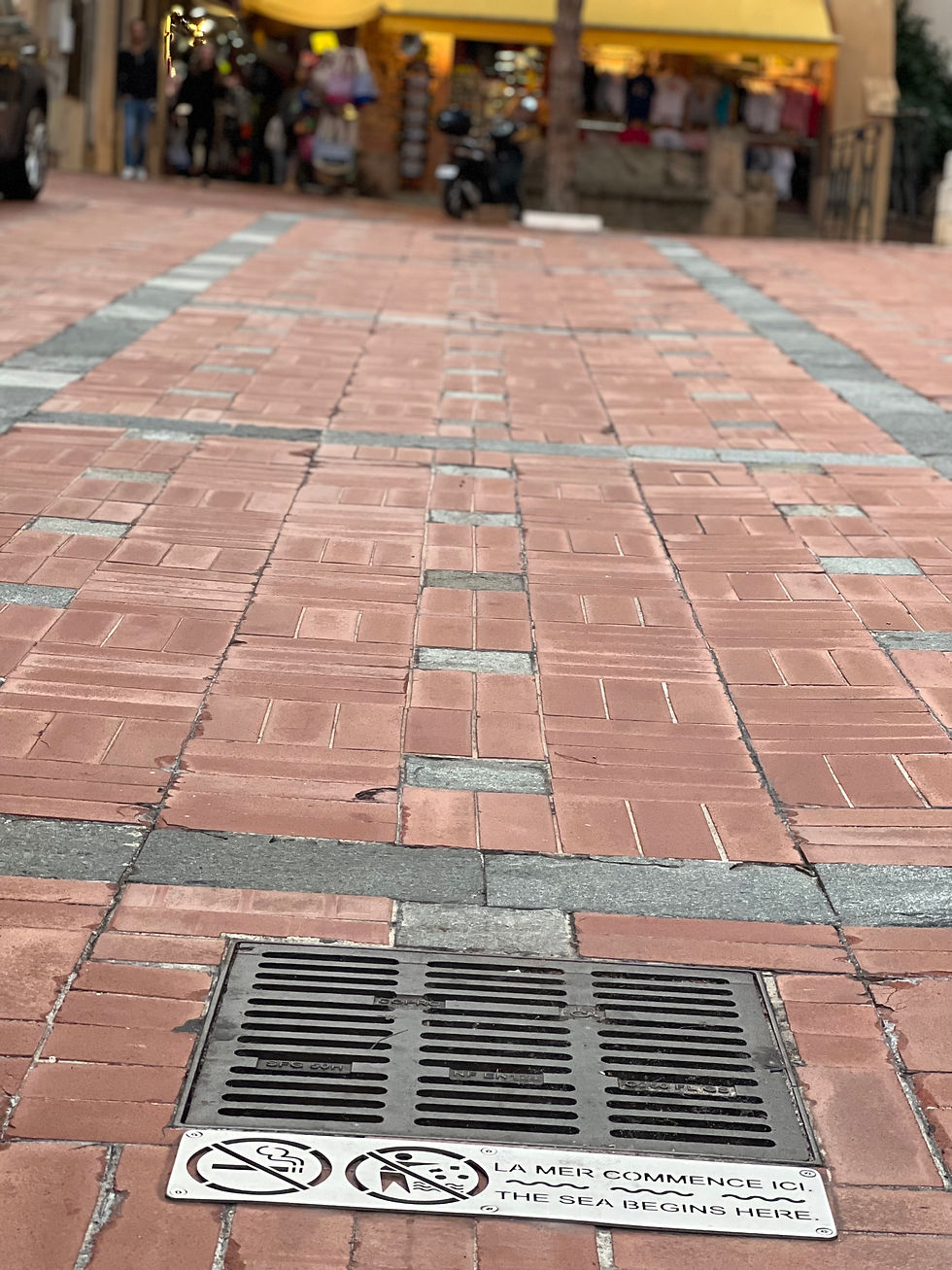New Zero Waste Rules in Monaco to start the new year with sustainable intentions.
- M Abti
- Jan 14, 2023
- 3 min read
Monaco Government takes another step towards reducing plastic waste. Since the 1st January 2023 new rules have entered into force in the Monegasque territory with the aim at achieving the target: "zero single-use plastic waste by 2030". The Gouvernement Princier is committed to build a new legislative framework within the Plan de Prévention et de Gestion des Déchets de Monaco à horizon 2030 (Monaco’s 2030 Waste Prevention and Management Plan). New measures are currently applicable to those plastic products whose waste is more potentially harmful to the environment, with special regard to the marine ecosystem.

From this date:
Meals taken on the spot, within a catering establishment, must be served in reusable dishes;
Cash and credit card tickets will no longer be printed systematically.
However, the customer will still be able to request the printing of any receipt the amount of his purchases.
They are combined with several measures that came into effect between 2021 and 2022:
The obligation for employers with a refectory to make available their employees reusable dishes and boxes to take their meals to take away.
The right of any consumer to be served in their own reusable container.
The ban on the supply of disposable cutlery in the take-away (they are for a fee and are only provided upon request).
Prohibition of meal plans with 'drink included', so as not to induce the consumer to take a beverage packaged in a single-use container (cans, plastic or glass bottles...).

The objects taken into account by government measures are various. Among them, widely-used tableware like straws, stirrers, cups, cutlery, plates, steaks, polystyrene containers for take-away sale, lids and means of closing cups, ice jars.
All these products can easily be replaced by biodegradable products. But also other common-use 'devices' notably: bags, cotton swabs, confetti, balloon rods, toys offered as gadgets in restaurant children’s menus, non-biodegradable tea or herbal tea bags, plastic wrapping around certain unprocessed fresh fruits and vegetables. The habit of using disposable plates or glasses or any other packaging made of plastic from fossil raw materials can lead to the subsequent degradation into smaller pieces with the passing of time through a process called 'oxo-degradation'. Considering that traditional plastics can take from 20 to 500 years to decay according to material and structure, the presence of plastic particles of various sizes (micro or macro plastics) can be really dangerous for the ability to easily enter the animal and human feeding cycle.
Monaco Environment Directorate officers will conduct regular monitoring visits
to verify the application of these measures by all stakeholders. Restaurants, bars and cafes will in particular be monitored and the ones joining the Commerces et Restaurants engagés label will benefit from a dedicated support to the ecological transition.

Plastic, that alien who lives at Planet Earth's Home...
Despite the fact that plastic is a material that has revolutionised the global market of the last century, its management must be totally redefined by giving priority to its ability to be recycled to avoid be thrown away after every single use. Typically, for example, a grocery plastic bag we use for a while takes up to two decades to disintegrate. Plastic bottles made of the most popular polyethylene terephthalate (PET) take a longer time, approximately 450 years to disappear. The problem in environmental terms is therefore obvious as well as the basic reason of this inability to easy degrade. Plastic is a material created by human beings and not originally present in nature. Thus, natural processes do not 'recognise' it as a part of their life cycle. Luckily, technological research has developed biodegradable plastics, or bioplastics, created artificially mixing polymers of natural origin, notably from corn or sugar cane. Although their combination is not natural they have a high biodegradability index. Another research is trying to optimise the chemical bonds of fossil-derived plastic to make it more easily degradable in nature. Recently, plastic eating bacteria have been considered a possible solution to plastic marine pollution despite dangerous side effects have been identified as well (Douglas Radar, Chief Ocean Scientist at the Environmental Defense Fund).
The best way to avoid the devastating impacts of about 400 million tons of plastic waste a year, only in small part recycled, is to prevent their production and dispersion in the environment through awareness campaigns and ever easier methods of collecting used plastic and recycling. ***
To know more about all measures and ask for information please contact:
Gouvernement Princier - Direction de l'Environnement
Tel.: +377 98 98 22 22
______________________________________
Discover MONACŒCOART® for Business:
ADVERSTISE YOUR GREEN CORE BUSINESS WITH US

By Maurice Abbati
Springer International Publishing

































































Comments